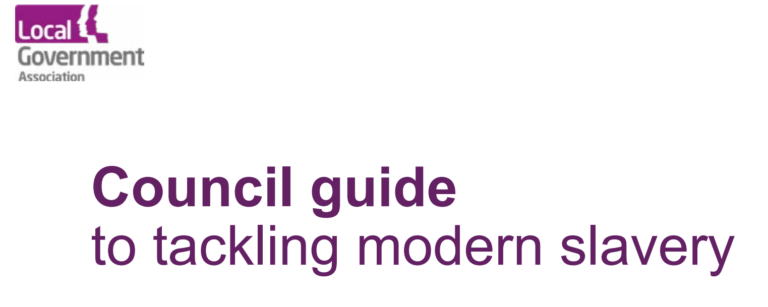In 2017, the Local Government Association (LGA) worked with the Office of the Independent Anti-Slavery Commissioner to develop the first council guidance on tackling modern slavery. The development of the guide followed a presentation by the first Commissioner, Kevin Hyland OBE, to the LGA’s Safer and Stronger Communities Board, setting out the scale of modern slavery in the UK and how it can affect communities everywhere. Since the publication of the guidance, trends in modern slavery, and councils’responses to the issue, have developed further. Council referrals of suspected victims of modern slavery have increased significantly, reflecting both the devastating trend of criminal exploitation of children in our communities but, more positively, also greater awareness and understanding of the issue. We have seen increasing numbers of councils identifying modern slavery lead officers and participating in local anti-slavery partnerships, as well as improving responses to victim support.However, there is still more to do to ensure our response to slavery and its victims is as good as it can be. Notwithstanding the challenges that can impair our response– whether that is victim reluctance to disclose information about their experience or resource and capacity pressures – we have a moral obligation to ensure a humane and compassionate response to people left traumatised by appalling abuse.

